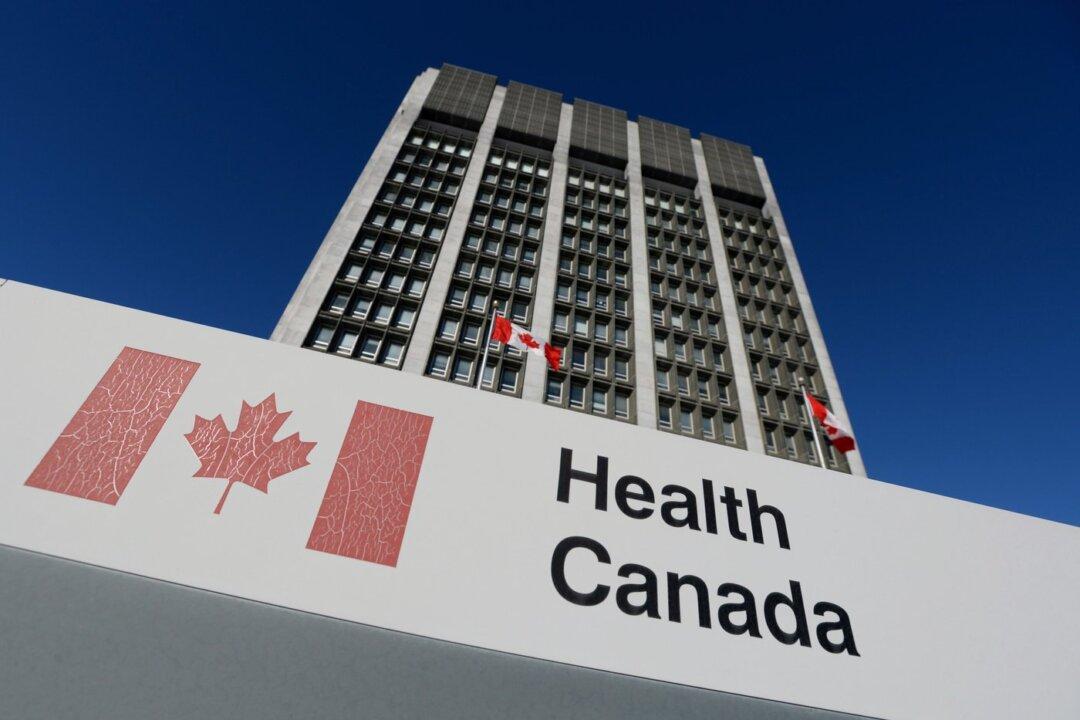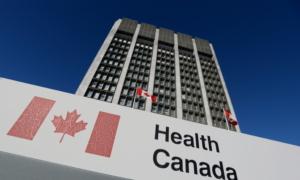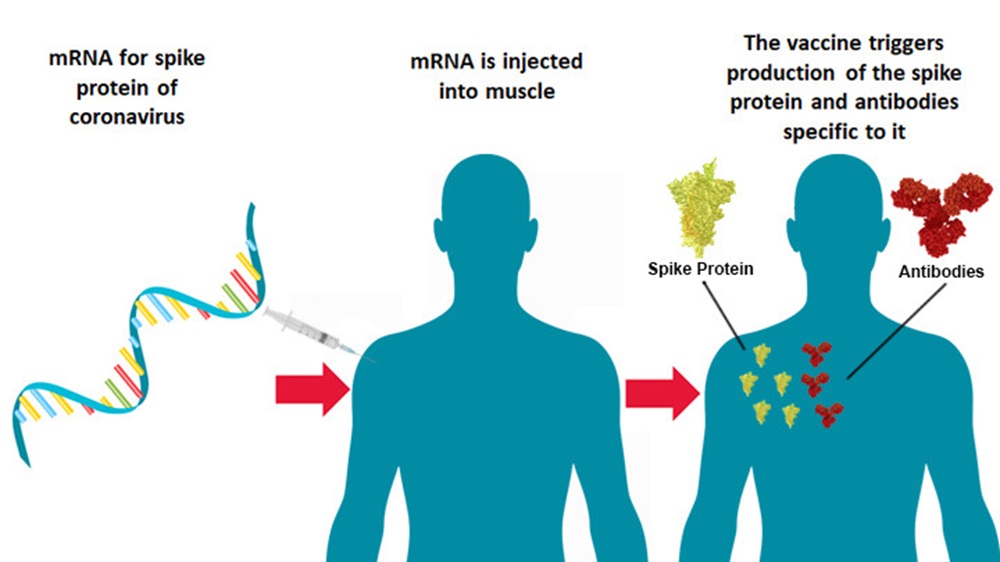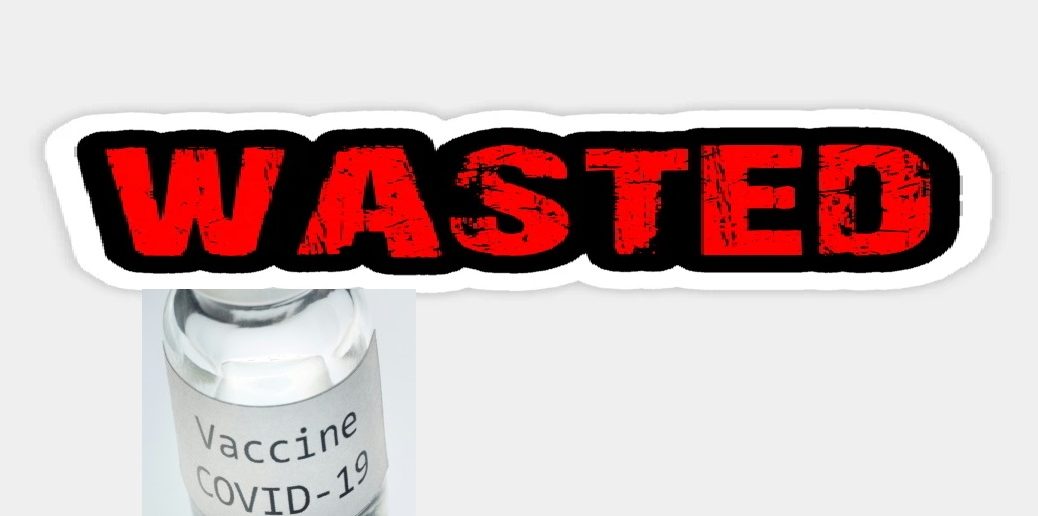COVID Vaccination Is ‘Safe’ but Remains Clinically Untested for Pregnant Women: Health Canada

Nearly four years after the launch of the massive COVID-19 vaccination campaign, which included mandates and passports, the safety of the products for pregnant women remains mostly untested clinically.
Health Canada answered a series of questions from Tory MP Colin Carrie in April about the issue.
“What specific research data supported the claims that … this product may be safely administered at any stage of pregnancy?” asked Mr. Carrie in an Inquiry of Ministry.
“Please note that the vaccine manufacturers did not seek an indication for use in pregnant and lactating women and the Product Monographs included statements about the uncertainty regarding safety and efficacy in pregnancy and lactation,” answered Health Canada, which is responsible for authorizing vaccines in Canada.
The product monographs for the widely administered COVID-19 shots from Pfizer-BioNTech and Moderna, which describe the properties, claims, indications, and conditions of use for the drug, state the unavailability of data regarding use during pregnancy.
“No data are available yet regarding the use of COMIRNATY Omicron XBB.1.5 during pregnancy,” said Pfizer-BioNTech’s monographs, both for its updated Omicron injection and its original one.

“The safety and efficacy of SPIKEVAX XBB.1.5 in pregnant women have not yet been established,” similarly say Moderna’s monographs for its updated Omicron shots and its legacy product.
Pfizer-BioNTech’s initial clinical trial for pregnant women, announced publicly in February 2021, encountered recruitment problems.
A Pfizer Canada representative told a member of the National Advisory Committee for Immunization (NACI) in April 2022 that the trial had been stopped due to slow enrolment, according to internal emails seen by The Epoch Times.
Jelena Vojicic, vaccines medical lead at Pfizer Canada, also said “it became unreasonable/inappropriate to randomize pregnant women to placebo given the amount of observational evidence that the vaccine is safe and effective, coupled with increasing number of technical committees supporting immunization of pregnant women.”
Despite hurdles, Pfizer-BionTech submitted results for a small clinical trial with 348 participants in July 2023, according to the U.S. government website ClinicalTrials.gov.
Moderna’s observational pregnancy outcome study was terminated in the fall of 2023 due to low enrolment, with ClinicalTrials.gov noting 20 enrolled participants.
Neither Pfizer nor Moderna responded to a request for comment.
While confirming there is little to no clinical trial data, Health Canada said vaccination for pregnant women was recommended based on evidence of safety and effectiveness growing from “real-world use.”
“Analysis of the data show that mRNA COVID-19 vaccines are safe for people who are pregnant or breastfeeding.”
Dr. Bernard Massie, a virologist and former National Research Council acting director general of the Human Health Therapeutic Research Center, raised doubts about the reliability of data obtained outside clinical trials, calling them “very incomplete and often biased.”
“We won’t find what we’re not looking for,” noting that real-world passive surveillance of side effects can be underrepresented by a factor of 10 and up to a 100 for lax systems.
‘Off-Label’
While Health Canada authorizes vaccines, the regulator said that NACI is responsible for formulating recommendations for public use.
“This means that NACI may provide recommendations that are broader or narrower than the conditions of use approved by Health Canada, often referred to as ‘off-label’ recommendations,” said spokesperson Anna Maddison, adding such a practice by NACI is ”not uncommon.” Ms. Maddison also noted the COVID-19 vaccines are not contraindicated in pregnant or lactating women.
At the beginning of the vaccine rollout, NACI said in December 2020 that pregnant or breastfeeding mothers “should not” in most circumstances be offered the vaccine “until further evidence is available.”
The recommendation was changed in January 2021 to “may be offered” following a risk assessment.
By May 2021, NACI had updated its recommendation for pregnant women that they “should be offered” COVID-19 mRNA shots.
To back its recommendation, NACI cited a U.S. government study of 35,000 pregnant women using data from December 2020 to February 2021.
“Preliminary findings did not show obvious safety signals among pregnant persons who received mRNA Covid-19 vaccines,” said the study. It noted, however, that “more longitudinal follow-up, including follow-up of large numbers of women vaccinated earlier in pregnancy, is necessary to inform maternal, pregnancy, and infant outcomes.”
Dr. Massie questioned whether the study by government scientists was interested in finding issues with vaccination and pregnancy given that the government was promoting mass vaccination.
After the results of the study were published on April 21, 2021 in the New England Journal of Medicine, other government advisory bodies recommended COVID-19 vaccination in pregnant women.
Quebec’s government announced vaccination would be offered to pregnant women on April 27 of that year, citing a recommendation from its immunization committee which “analyzed the evolution of scientific data and recommendations in different countries.”
B.C.’s government recommendation came on May 4, 2021. “All Health Canada-approved vaccines are safe and effective, and I encourage everyone to register and receive their vaccine as soon as they are eligible. Today, this includes people who are pregnant,” said Dr. Bonnie Henry, B.C.’s provincial health officer.
‘Not’ Advertising
Dr. Philip Oldfield, who has more than three decades of experience specializing in the bioanalysis of protein/nucleic acid therapeutics and regulatory affairs, raised questions about the product monographs for vaccines saying effects on pregnancy were not tested while government bodies encourage pregnant women to be vaccinated.
He also points to passive surveillance data on vaccine adverse events collected in the United States showing over 2,000 miscarriages following COVID-19 vaccination. While this data doesn’t prove causality, it is considered largely underreported.
Dr. Oldfield said Health Canada encouraging pregnant women to get vaccinated for COVID-19 could contradict “both the law with respect to false and misleading advertisements of a drug, and contradicts the safety data found on both the Moderna and Pfizer monographs.”
The Epoch Times asked Health Canada if it is allowed by law to make recommendations about the use of products for certain populations for which the products’ monographs do not indicate safety information. The Foods and Drugs Act states that “No person shall label, package, treat, process, sell or advertise any drug in a manner that is false, misleading or deceptive or is likely to create an erroneous impression regarding its character, value, quantity, composition, merit or safety.”
Health Canada spokesperson Anna Madison responded that “public health messages from a government authority that promote vaccination would not qualify as advertising of a health product.”
Despite different bodies’ recommendations for pregnant woman, NACI noted in a summer 2022 report that “uptake of COVID-19 vaccine has been lower among pregnant people compared to non-pregnant people in Canada.”
“Preliminary unpublished evidence in Ontario indicates that primary series vaccine coverage among pregnant people (71 percent) was 16 percentage points lower than in the general female population of reproductive age in Ontario by the end of 2021.”
Animal Studies
Outside of emerging real-word evidence, regulators and advisory bodies have also cited studies conducted on animals to determine the safety for pregnant women and their babies.
“Animal studies do not indicate direct or indirect harmful effects with respect to pregnancy, embryo/fetal development, parturition, or post-natal development, and human randomized clinical trials were not submitted for regulatory evaluation,” said Health Canada in responding to MP Carrie.
The NACI also cited a study conducted on rats with Pfizer’s mRNA vaccine to back its recommendation, saying no issues were encountered.
A Moderna nonclinical overview submitted to the U.S. government and obtained by legal advocacy group Judicial Watch through a lawsuit indicates the presence of “statistically significant increases” in rat offsprings with “wavy ribs and 1 or more rib nodules.”
“There were no other indicators of mRNA-1273-related developmental toxicity observed, including delayed ossification; therefore, these common skeletal variations were not considered adverse,” concluded the manufacturer.
Both Dr. Oldfield and Dr. Massie said the animal studies conducted are not proper to assess risk in humans. “Using an inappropriate species in the Developmental and Reproductive Toxicity (DART) studies would never pick up the toxic effects due to the spike protein,” said Dr. Oldfield. “The animal studies were performed using an inappropriate species (rat) which unlike humans, their ACE receptors does not bind to the vaccine generated spike protein.”
Breastfeeding
MP Carrie also raised the issue of breastfeeding in his request for information to the government, asking what specific research data there is to say that “modRNA vaccine, and consequently the spike protein, do not excrete into breast milk.”
Health Canada responded that the product monographs for authorized COVID-19 vaccines “include a statement that it is unknown whether the COVID-19 vaccine is excreted in human milk.”
“A risk to newborns/infants cannot be excluded,” it adds.
Studies have found mRNA from COVID shots does end up in breast milk, with a recent one published in the medical journal Lancet in September.
In response to previous questions, Health Canada told Mr. Carrie last year that “mRNA-encoded spike protein is only expressed transiently and at the injection site and the liver, then declines over time.”
Authors of the study published in the Lancet noted their “findings demonstrate that the COVID-19 vaccine mRNA is not confined to the injection site but spreads systemically and is packaged into [breast extracellular vesicles].”
The scientists said that since only “trace quantities” are present and a “clear translational activity is absent, we believe breastfeeding post-vaccination is safe, especially 48 h after vaccination.” They specified that since the minimum mRNA dose to elicit an immune reaction in young infants is unknown, breastfeeding mothers should consult with a health-care provider to discuss risks and benefits in the first two days after vaccination. For the Silo, Noé Chartier/Epoch Times.




